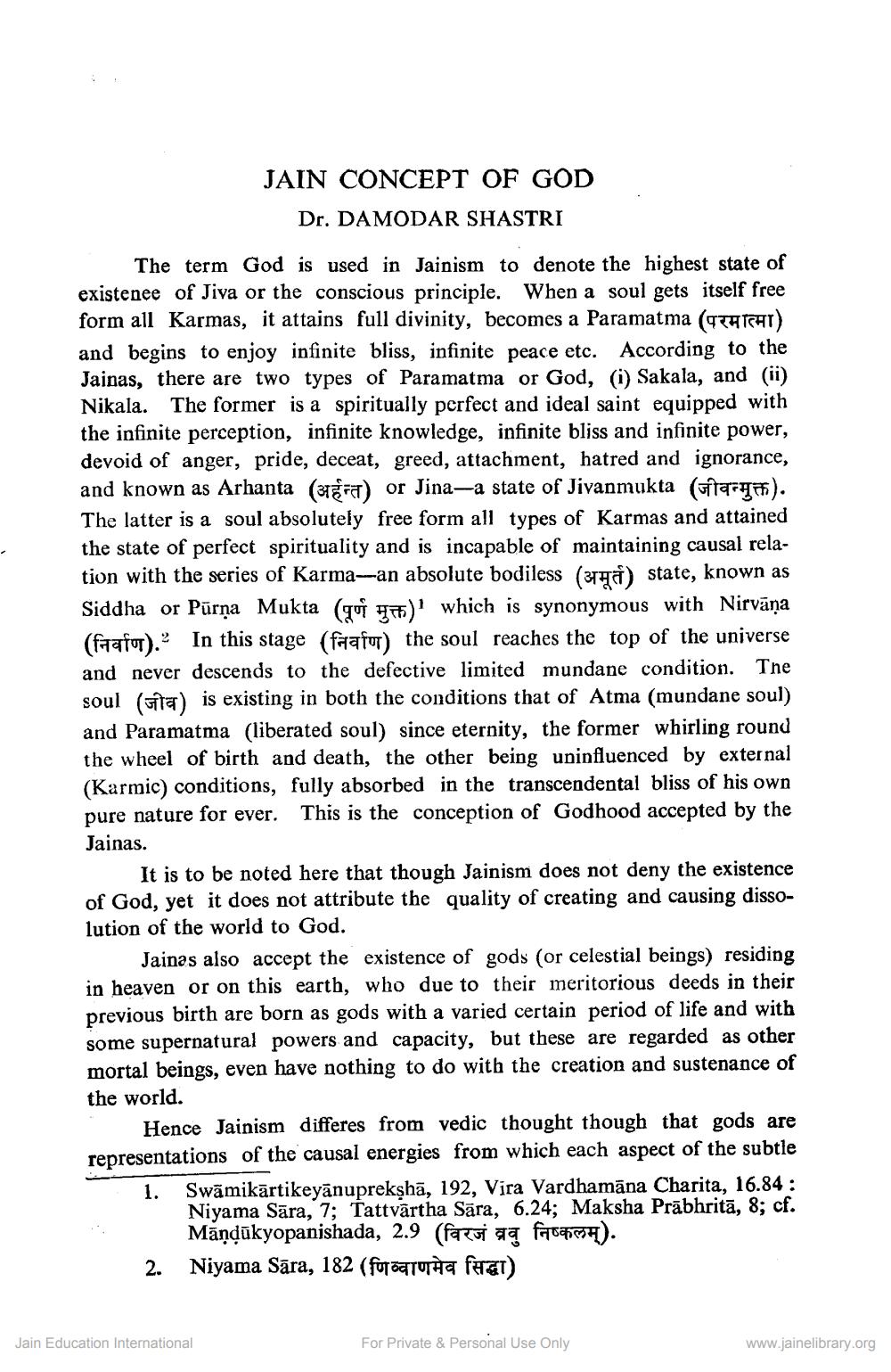________________
JAIN CONCEPT OF GOD
Dr. DAMODAR SHASTRI
The term God is used in Jainism to denote the highest state of existenee of Jiva or the conscious principle. When a soul gets itself free form all Karmas, it attains full divinity, becomes a Paramatma (GTAAT) and begins to enjoy infinite bliss, infinite peace etc. According to the Jainas, there are two types of Paramatma or God, (i) Sakala, and (ii)
• The former is a spiritually perfect and ideal saint equipped with the infinite perception, infinite knowledge, infinite bliss and infinite power, devoid of anger, pride, deceat, greed, attachment, hatred and ignorance, and known as Arhanta (tera) or Jina-a state of Jivanmukta (star ). The latter is a soul absolutely free form all types of Karmas and attained the state of perfect spirituality and is incapable of maintaining causal relation with the series of Karma-an absolute bodiless (378) state, known as Siddha or Pūrņa Mukta (qui 4)' which is synonymous with Nirvāņa (frafor). In this stage (farafor) the soul reaches the top of the universe and never descends to the defective limited mundane condition. The soul (ta) is existing in both the conditions that of Atma (mundane soul) and Paramatma (liberated soul) since eternity, the former whirling round the wheel of birth and death, the other being uninfluenced by external (Karmic conditions, fully absorbed in the transcendental bliss of his own pure nature for ever. This is the conception of Godhood accepted by the Jainas.
It is to be noted here that though Jainism does not deny the existence of God, yet it does not attribute the quality of creating and causing dissolution of the world to God.
Jainas also accept the existence of gods (or celestial beings) residing in heaven or on this earth, who due to their meritorious deeds in their previous birth are born as gods with a varied certain period of life and with some supernatural powers and capacity, but these are regarded as other mortal beings, even have nothing to do with the creation and sustenance of the world.
Hence Jainism differes from vedic thought though that gods are representations of the causal energies from which each aspect of the subtle
1. Swāmikārtikeyānuprekshā, 192, Vira Vardhamāna Charita, 16.84 :
Niyama Sāra, 7; Tattvärtha Sāra, 6.24; Maksha Prābhritā, 8; cf.
Māņdūkyopanishada, 2.9 (fareu a falaima). 2. Niyama Sāra, 182 (forogturha fa&T)
Jain Education International
For Private & Personal Use Only
www.jainelibrary.org




